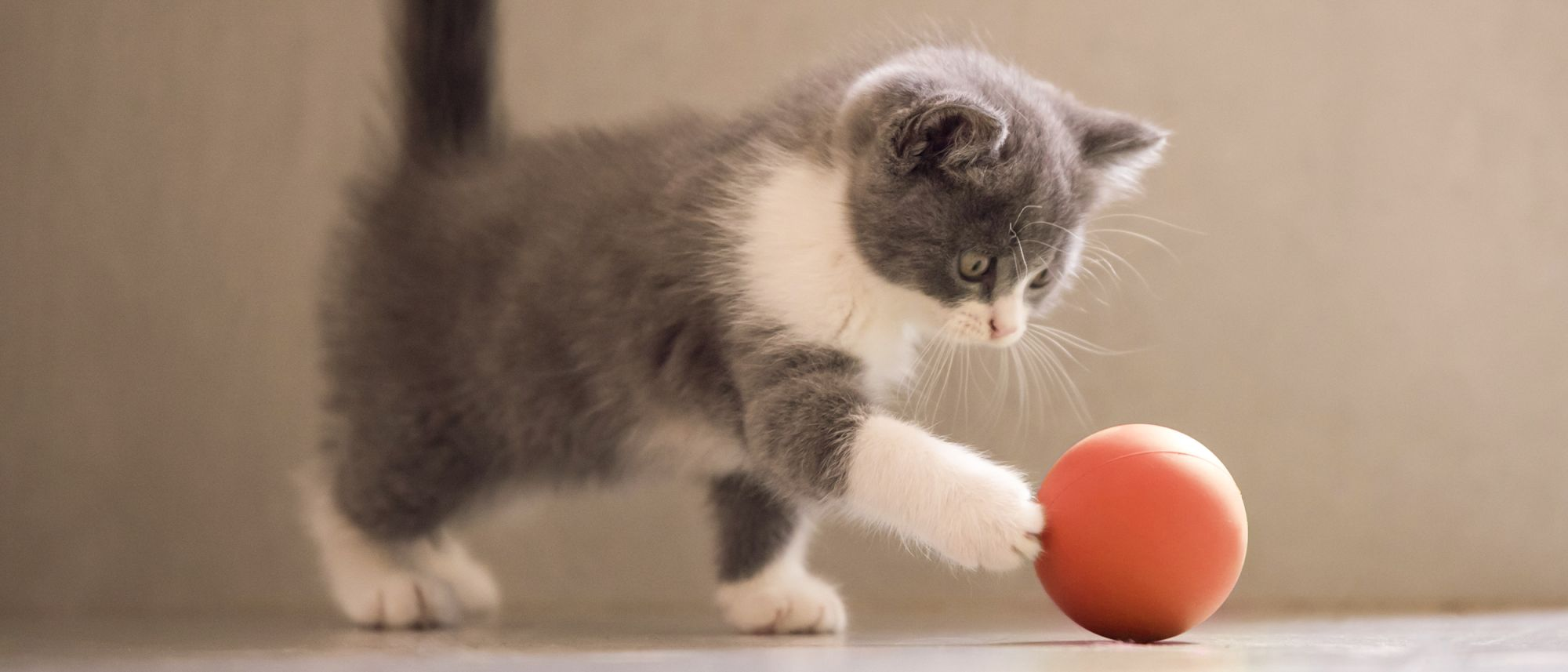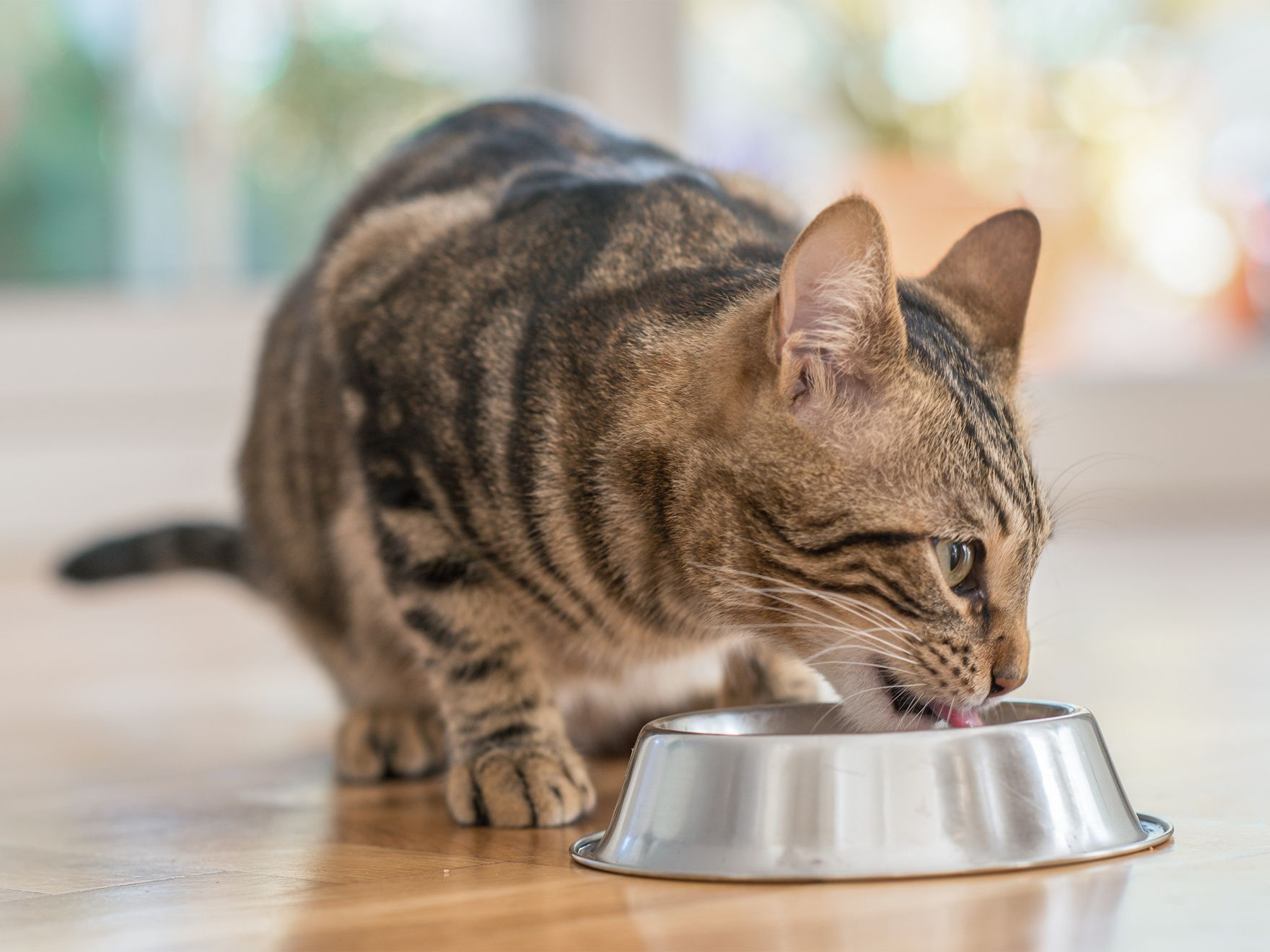A guide to kitten obesity
Article

Can my kitten be overweight?
Yes, your kitten can be overweight. When it comes to your kitten, there is something we call an optimal weight and an optimal growth rate. That is, based on their age and breed, the weight and size they should be. If they go over that weight, your kitten will be classified as overweight. Optimal weight is normally a result of an optimal growth rate, which essentially means your kitten grows gradually, fueled by the correct level of nutritional food for their age, size and breed.
Is my kitten overweight?
Pediatric growth charts now help us monitor kitten growth and ensure it stays on track. So, if you're worried about your kitten's weight you should seek assistance from your veterinarian. An overweight condition can only be confirmed after an evaluation of your cat's Body Condition Score (BCS) on top of weight observation.
What is a Body Condition Score (BCS)?
A BCS is a method used by veterinarians to help determine if your cat is overweight or not. A cat body condition scale ranges from 1 to 9, with 1 indicating a cat is severely underweight, and 9 meaning severely obese. A cat is considered to have an ideal body condition if they score between 4 and 5. Your vet will look at things like your cat's body shape and how visible their ribs are to determine their score.
What do kittens need from their diet?
A kitten's nutritional requirements are different from an adult cat's as they require more energy, more proteins, and more minerals to fuel their growing body. Initially, your kitten will get everything it needs from its mother's milk or a kitten milk replacer, and you'll see it put on weight steadily. When you begin to wean your kitten onto solid food, you should choose food that provides it with the right mix of essential nutrients to stay healthy.
Keep it simple
Texture and smell are more important to a kitten than flavor, as cats only have a few hundred taste buds compared to the 9,000 humans have. So you should select food that is of the right shape and feel for your growing kitten. Give your kitten the recommended portion of food each day, either serving it in smaller meals throughout the day or leaving the whole portion out so your kitten can regulate its own intake. Fresh water and a peaceful area in which to eat are two other essentials.
Stick to your routine
Unlike humans, kittens don't need variety in their diet, so avoid feeding them different sorts of food—including table scraps, which don't necessarily give them the nutrients they need. This can contribute to weight gain and can encourage poor feeding behavior, like begging. If you do need to adjust their food, do so gradually, as their digestive system struggles to cope with sudden dietary changes.
How can I manage my kitten's weight?
If you’re concerned about your kitten's weight, you should visit your vet to get advice on how to manage it. Initially, though, you can try:
- Weighing your kitten: Before they begin eating solid food, weigh your kitten each day. They should consistently gain weight, and if they don't you should consult a veterinarian to see if you need to supplement their diet with a milk replacer for kittens. You should weigh them once a month from 2 months until 6 months, then every 3 months until adult size (12 months in most kittens, 15 months for breeds such as Maine Coons).
- Feeding schedules: Once your kitten is eating solid food, you should check whether they are able to self-regulate their eating habits or whether you need to help them. Naturally, cats are grazers and can eat up to 16 small meals a day. Put down your kitten's daily allowance and watch their behavior; if they eat a few mouthfuls and return through the day, you can continue to put out the entire allowance at once. If they tend to eat the whole portion, you'll need to split it into multiple meals and space these throughout the day.
- Resisting begging behavior: Your cat may already be displaying begging behavior, or may start when you introduce feeding schedules. Just because your cat keeps begging for food it doesn’t mean they need it. Stick to your rules and guidelines and it will help your kitten maintain optimal weight.
- Exercise: Keep your kitten active by playing games with them, using food puzzles or enriching their environment with new toys and activities.

Why is my kitten overweight?
Your kitten may have become overweight for many different reasons but most likely a combination of multiple factors. A maximal growth rate, where your cat grows much quicker than expected, can cause them to become overweight. This maximal growth rate is most commonly caused by overfeeding, or a diet that is too rich in fat. You can avoid the likelihood of obesity by checking with your veterinarian on the most appropriate portion size and food types for your cat's breed and lifestyle.
Your kitten's lifestyle
Your kitten's lifestyle needs to be considered when setting up feeding routines. If your cat doesn't go outside or is particularly sedentary, their energy requirements will be lower. Similarly, if your cat has been spayed or neutered, their energy requirements tend to decrease post-surgery. At the same time, their appetite tends to increase, which can lead to unhealthy weight gain.
Although obesity is a pressing risk in cats, it can be avoided by adjusting what and how you feed your cat to reflect its lifestyle. If you're unsure about how to do this, talk to your veterinarian who will be able to help.
Tailored nutrition for your kitten
Nutritional formulas that help to build your kitten's natural defences, support healthy growth, and aid in digestive system development.
Like & share this page